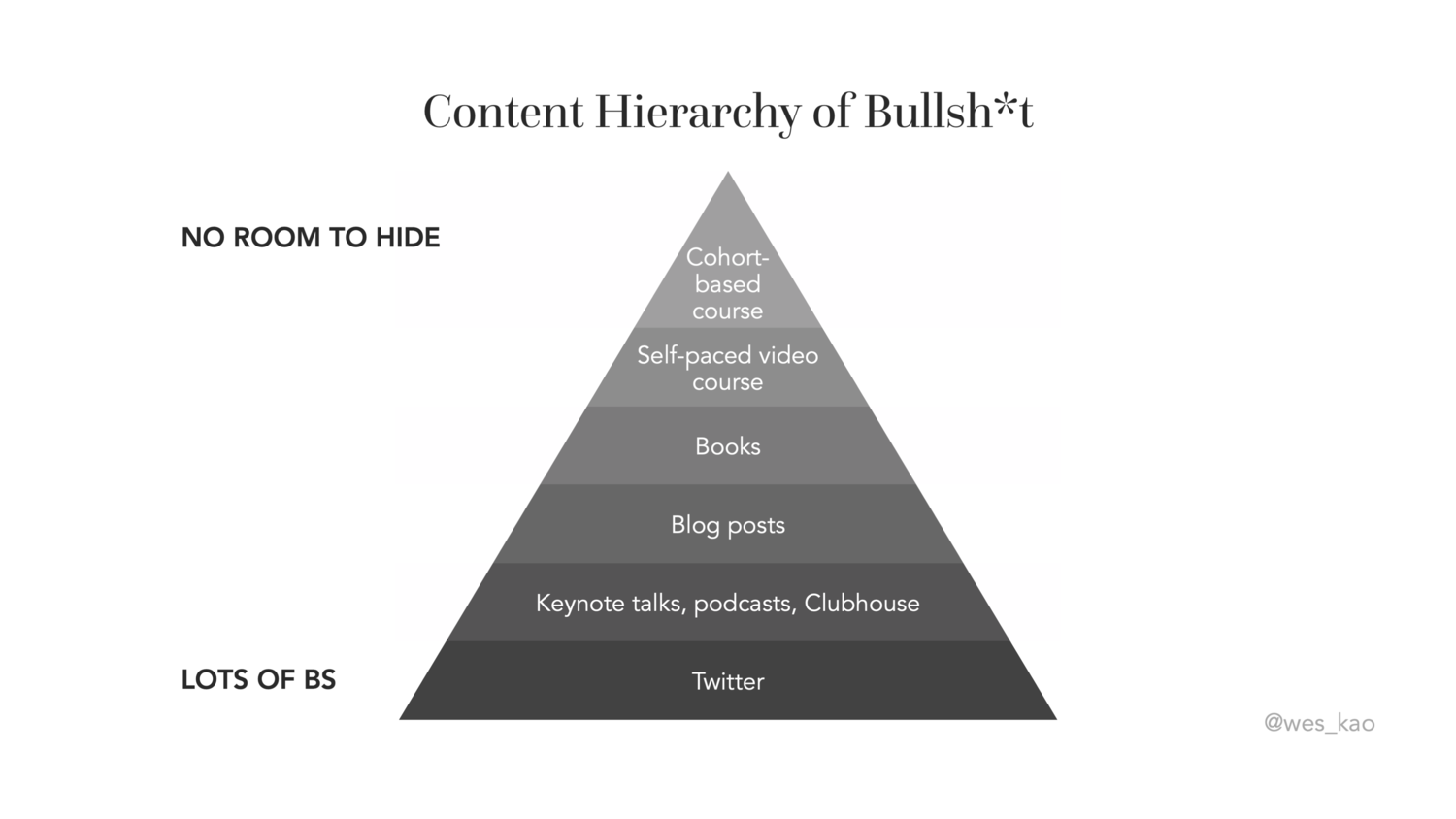- Practical Wonder
- Posts
- 🧠 Your Expertise Isn't the Problem. Your Positioning Is.
🧠 Your Expertise Isn't the Problem. Your Positioning Is.
Having expertise and leveraging expertise isn't the same thing
Hey—It’s Mohammad.
I’ve met a ton of smart people, and they all suffer from a similar problem: having expertise ≠ authority. And they know it too. They don’t know how to share what they know.
Read Time: 6 minutes
Having knowledge but lacking the power to express it clearly is no better than never having any ideas at all.
A footwear industry expert came to me with a problem I see constantly: their knowledge that wasn't translating to opportunity.
10+ years of industry experience, 7K followers on LinkedIn, but 0 booked calls
Fast forward 10 weeks:
16 total discovery calls with qualified leads
2 sold-out workshops at an industry conference
2 Global brands recognizing them for their innovation and skills.
What changed?
Not their expertise. Not their work ethic. But their approach to positioning that expertise. And that change made all the difference.
Let's get into exactly what works—and what doesn't—when converting expertise into authority.

Specificity leads to trust.
Most self-proclaimed "thought leaders" don't actually lead anything.
They give broad statements and playing it safe. Hiding behind generalizations, vague words, and long sentences.
They’re afraid to be specific because being specific means putting a stake in the ground. No wiggle room. No nuance.
I get that. No one wants to say the wrong thing.
But real authority is built by breaking the rules most "experts" follow religiously—and knowing which rules are keeping you in the middle of the pack. Most experts stick with generalizations and no specific.
Instead, you should be as specific as possible but in a specific context.
If you have personal, hands-on experience, be as specific as possible.
That’s all it takes to build authority in any niche.
The Super-Specific How & Hierarchy of Bullshit.
Wes Kao coined the term when it comes to cohort-based-courses in her article.
She has a hierarchy of bullshit. The higher up the hierarchy, the less room there is to hide.
Cohort—based-courses have little room to hide because the students can question everything a teacher says.

The same idea holds up for sharing expertise.
The more specific you share about your experience; the more people can interact and question you.
This specificity leads to trust.
The Counter-Intuitive Truth
Specificity doesn't shrink your market; it eliminates non-viable prospects while spotlighting your appeal to ideal clients.
My client didn't need another 1,000 followers. They needed decision-makers at footwear companies to recognize him as the definitive expert in their precise problem space.
When you embrace painful specificity, three things happen:
Your visibility among ideal clients dramatically increases (even as your general audience may decrease)
Your expertise multiplies because you're addressing precise pain points
Your conversion rate from content to inquiries exponentially improves
But everyone has different thresholds.
Finding Your Methodology Specificity Threshold
Your specificity threshold isn't just about your market - it's about how detailed you're willing to get about your process and methods to attract business.
Guideline: Focus on sharing details your clients would find credible.
To find your threshold, ask yourself:
What parts of my methodology do I avoid explaining in detail because they seem "too technical"?
What specific steps in my process do I generalize when I could be precise?
What measurable outcomes from my methodology do I have specific numbers for?
When you feel the urge to say "it depends" instead of sharing exact numbers, processes or techniques - that's your threshold.
For my client, when we started getting more specific:
Subscribers increased by 41%, averaging a 51% open-rate.
Nearly 10K LinkedIn followers
And 16 booked calls.
All in a little over 2 months.
For next week:
Take one piece of content where you've shared general advice and transform it with methodological specificity:
Replace vague instructions with precise, step-by-step procedures
Add actual numbers, timeframes, and measurable outcomes
Include the specific tools, frameworks or templates you use
Address the specific contexts where your method works (and doesn't)
The goal isn't to narrow your audience, but to deepen their trust through transparency about your specific "how."
See you next Saturday— Mohammad
Quick reminder - If you like my newsletter please do “add to address book” or reply. These are “positive signals” that help my newsletter land in your inbox.
PS: If you’re ready for more insights, here are other ways I can help:
If you have any questions, reply to this email.
Or if you need specific help, Book a Q&A call.
Follow me on LinkedIn for bite-sized tips throughout the week (free).

Reply